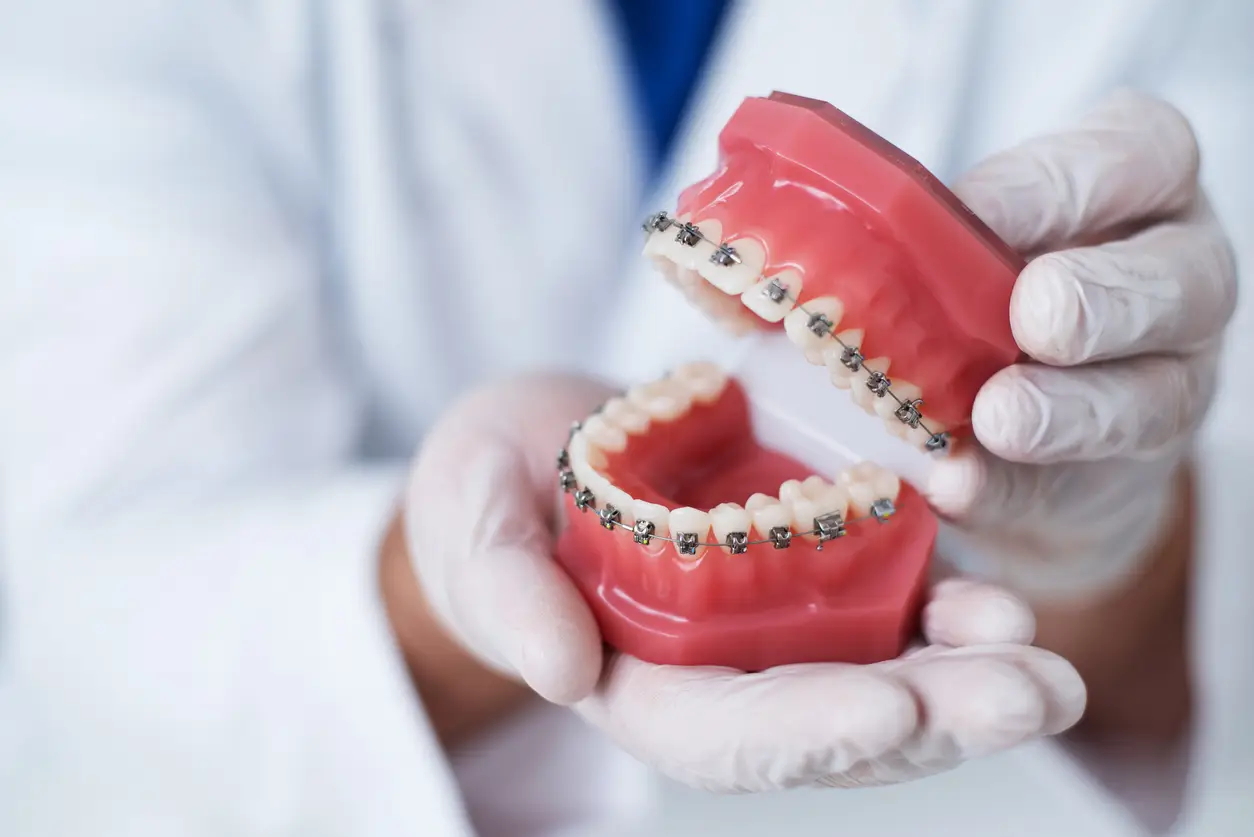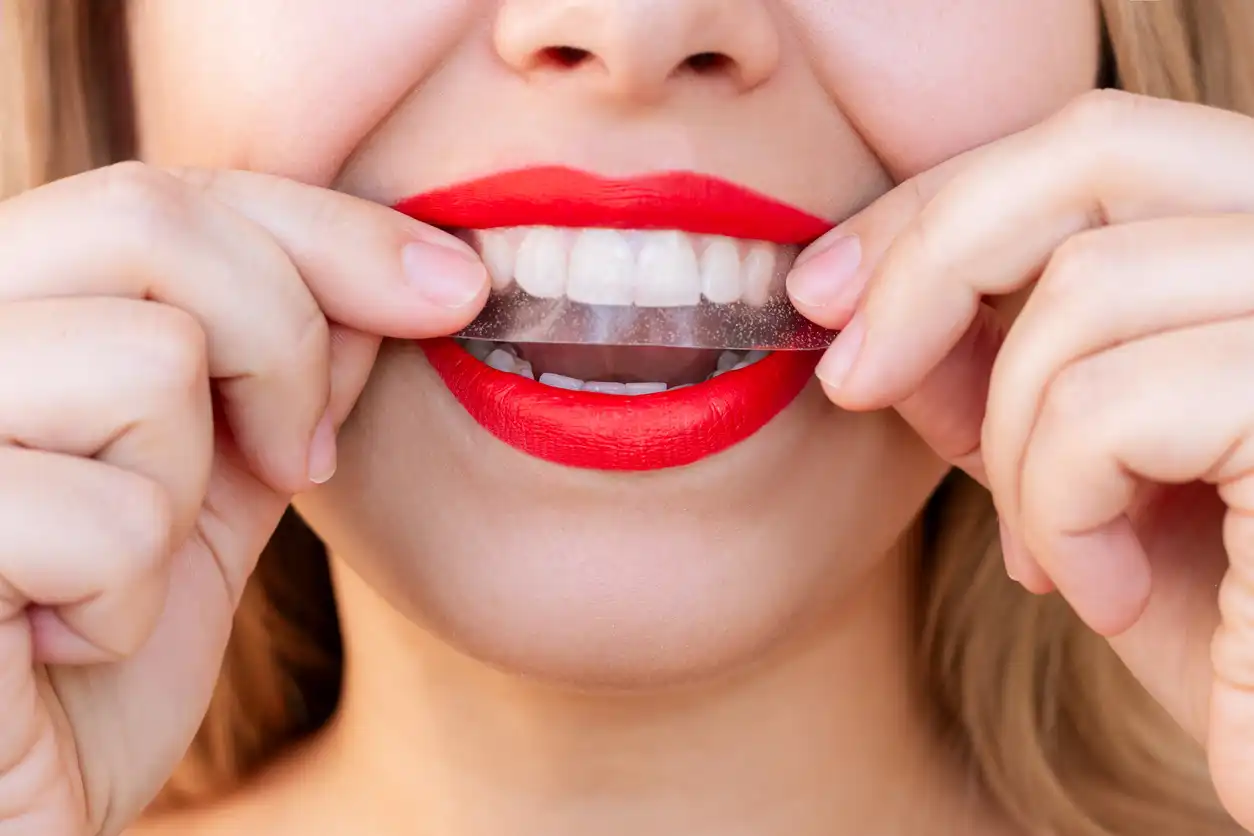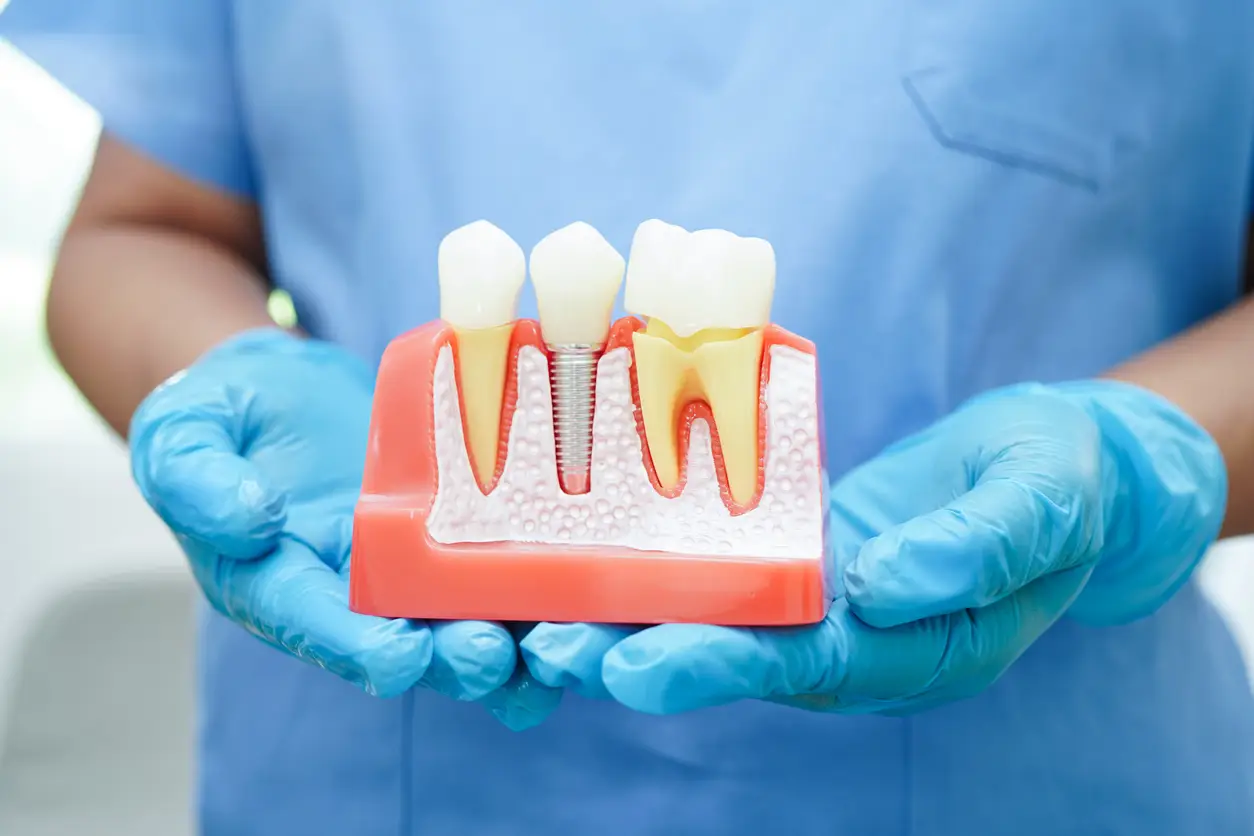Dental implants are a long-term solution for teeth loss. It is an implantation of the titanium post into the jawbone as a substitute for the root. A crown is cemented over it as a replacement for the tooth. Whereas dentures or bridges are artificially needed, dental implants West Hollywood ca are firm and long-lasting because they can, and are, more so. And with osseointegration, the implants feel as good as your teeth.
Is There an Appropriate Candidate for Dental Implants?

Are you a good match for West Hollywood dental implants? There are several different conditions which will determine whether or not this is suitable for you.
Have Any Broken Teeth?
Dental implants can replace teeth lost due to gum disease, decay, or trauma. It can stop that bone loss in its tracks and give back to you something that is permanent tooth-replacement-like.
Patients with severely worn-out teeth that cannot be restored are also suitable candidates for implants. Implants differ from bridges in that they do not sit on neighboring teeth.
Is Your Jawbone Strong Enough?
You must have a thick, healthy jawbone that can hold best West Hollywood ca dental implants. If the bone is too thin or too porous and there is not enough bone, there will have to be a bone graft so that the area can be packed out before implant placement.
Your bone density will be assessed by your dentist through an X-ray or CT scan. If your bone is sound, the implants can be placed without additional surgery.
Are You in Good Oral and General Health?
Good dental health is well-suited for dental implants in West Hollywood ca success. Systemic disease with smoking, diabetes, or chronic periodontal disease can lead to healing impairment.
The patient should be healthy and not have any oral infection. Your dental history will be considered by the dentist before him or her dispenses implants to you.
What Are the Benefits of Dental Implants?
Other tooth replacement alternatives cannot be compared with dental implants in terms of functionality. They have functional and cosmetic advantages, translating into a better quality of life.
Improved Aesthetic and Boosted Confidence
Dental implants feel so natural and comfortable that you will believe they are yours. They restore your smile and, therefore, your appearance. They are fixed and won’t shift or embarrass you as dentures would.
A new smile can provide a new sense of self-assurance and self-worth. Implants will feel most relaxed to most patients socially.
Better Chewing and Speech
Missing teeth or loose teeth may interfere with speech and chewing. You may have the most potent chewing force with implants and can chew any food you wish.
Since they are not in motion as with dentures, implants bring stability to speech. It is this that avoids slurring of speech or pain of speech.
Long-Term Stability
If looked after, dental implants will remain for a lifetime. Unlike bridges that must be replaced every decade or two, implants are cemented to the jawbone to provide long-lasting support.
Your implants are kept healthy by regular daily dental examinations, brushing, and flossing. They’re a sound, oral, long-term investment.
What Does the Dental Implant Process Involve?
It is something that requires more than one step to be able to put dental implants in. There is some healing and bonding with the jaw involved as well.
First Consultation and Checkup
Your case, X-rays, and mouth, as well as your dentist’s, will be checked out. Stabilization of the implant site would be advised in the event of bone grafting.
Once the treatment plan is established, the surgeon performs the surgery. Based on your need, your dentist will establish when the implant will be placed.
Surgical Implant Placement
The titanium post is placed within the jawbone under local anesthetic as a treatment component. The osseointegration, or the healing process, will take several months. The implant will be cemented onto the bone, which will stabilize it.
You may have an appearance tooth inserted during the osseointegration time of the implant. Your dentist will check for your healing process through follow-ups.
Fitting the Permanent Crown
Once your implant settles, the abutment is screwed on to hold the post and permanent crown. The prosthetic crown is shaded and shaped to blend with your natural tooth color.
Your dentist will ensure a good biting relationship after the implant. Your dentist’s routine follow-up dental care will maintain your new implant’s health and ensure that it functions regularly.
What Are the Risks and Complications?
Implants are highly successful but far from risk-free. Awareness of the risk for complications prior will lead to uneventful healing.
Infection or Implant Failure
Infection is due to disease or oral disease. Post-op follow-up instructions should be heeded not to give this a chance of occurring.
In sporadic cases, an implant will fail to osseointegrate with bone. Your dentist will then be able to discuss a replacement or alternative with you.
Gum Recession and Bone Loss
Malposition of the implant or bad gum condition causes recession of gums. This exposes the implant and compromises its stability. Survival of the implant is ensured by routine dental checkups, monitoring the gum position and preventing complications. Bone loss around the implant is acceptable in the long term, with noncompliance in oral hygiene. Survival of the implant is ensured by brushing, flossing, and professional cleaning regularly.
Nerve or Sinus Damage
Implants misplaced cause numbness or paresthesia. In the upper jaw, they may enter sinuses. Computer imaging is used by highly trained dentists to avoid this complication.
Collaborating with your dentist to create a plan beforehand boosts the odds of a favorable outcome and cuts the risk of problems.
How to Care for Dental Implants?

Keep dental implants in West Hollywood ca clean the same way you do natural teeth.
Daily Brushing and Flossing
Regular tooth brushing with a soft-bristled toothbrush loosens the plaque. Flossing alongside the implant makes it infection- and gum disease-free.
Aside from this, antibacterial mouthwash will also protect against oral disease. Your dentist can prescribe special cleaning instruments for hard-to-reach places.
Regular Dentist Appointments
Regular check-ups at the dentist enable your dentist to track the health of your implant. Professional cleaning loosens the plaque and healthy gums.
Any distress or deviation is treated in the first stage to avoid complications. Your dentist gives personal guidance.
Prevention of Destructive Habits
Hard food mastication, smoking, or bruxism kills the implants. A mouthguard should be worn at night to avoid overloading the implant.
Stopping smoking speeds up healing, and the likelihood of losing the implant decreases. Minor adjustments make a big difference to the implant’s survival.
Conclusion
Denture implants are permanent, natural-looking tooth replacements for teeth. You can restore your smile if you have healthy gums and bones and will take good care of them. Go consult a professional dentist and find out what is best for your particular situation. A healthy, confident smile starts with choosing the right dental implants.
Share This Article.
Related Posts
Recent Posts
Our Hours
| Monday | 8:30 – 5:30 |
| Tuesday | 8:30 – 5:30 |
| Wednesday | 7:30 – 5:30 |
| Thursday | 8:30 – 5:30 |
| Friday | 8:30 – 5:30 |
| Saturday | Closed |
| Sunday | Closed |
Serving the Communities of Beverly Hills, West Hollywood, & LA and the Neighborhoods of Mid-Wilshire & the Miracle Mile





